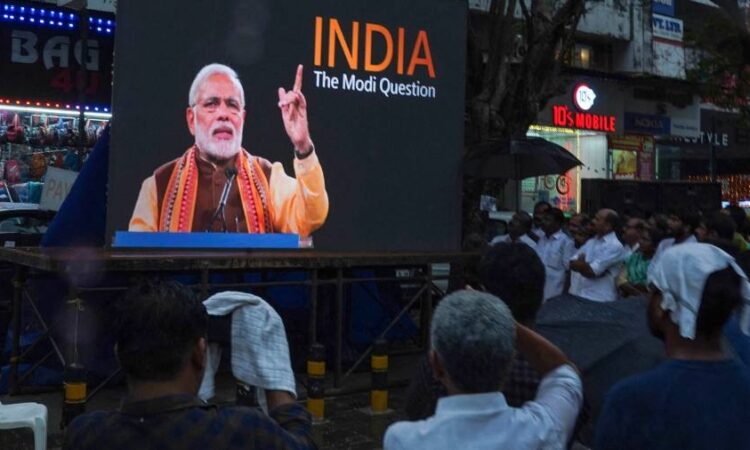
The BBC is facing legal action in India after it was accused of defaming Prime Minister Narendra Modi in a documentary series investigating his role in religious riots in the state of Gujarat in 2002, adding to the UK public service broadcaster’s growing list of legal troubles in the country.
The lawsuit was filed in New Delhi’s high court by Justice on Trial, a Gujarat-based trust, which according to its website is devoted to defending the reputation of the judiciary in Gujarat and the wider country.
The complaint alleged that the BBC series “casts a slur on the reputation of the country and also makes false and defamatory imputations and insinuations against the prime minister of India, the Indian Judiciary and the Indian criminal justice system”, according to a court order issued by judge Sachin Datta.
The BBC has until September to respond to the allegations. It said in a statement that it was “aware of the court proceedings”, adding that it would be “inappropriate to comment further at this stage”.
Justice on Trial could not immediately be reached for comment. It was represented in court by Harish Salve, one of the country’s most high-profile lawyers.
The BBC’s two-part series, entitled “India: The Modi Question”, prompted a furious reaction from the prime minister’s Bharatiya Janata party and its supporters when it was first aired in the UK in January.
The Indian government dismissed the film as a “propaganda piece” and invoked emergency legislation to block its broadcast in India, but many local viewers circumvented the ban and watched it using virtual private networks.
Weeks after it aired, Indian tax authorities conducted a three-day search of the BBC’s Delhi offices and subsequently alleged they had uncovered “crucial evidence” of suspected tax irregularities.
India’s Enforcement Directorate, the country’s financial crimes agency, also launched an investigation in April into the UK broadcaster for alleged violations of foreign exchange rules, according to local media. Authorities have not linked those actions to the documentary series.
The BBC’s series probes Modi’s actions during the 2002 Gujarat riots that killed more than 1,000 people, mostly Muslims, while he was chief minister in the state. It also examines his government’s policies towards Muslims since he became prime minister in 2014.
The backlash against the BBC comes at a delicate time in relations between India and the UK. Both sides have been keen to deepen economic and defence ties, but those efforts have been complicated by tensions between the countries.
The UK and India missed a self-imposed deadline last year to negotiate a free-trade deal. Indian officials lodged a complaint in March after Sikh separatists tore down the country’s flag at a protest outside the Indian High Commission in London. The British government subsequently promised to review security at the diplomatic mission.
UK prime minister Rishi Sunak met Modi at the G7 summit in Japan over the weekend, at which the two leaders discussed the pending trade deal. “The leaders agreed that their teams would continue to work at pace to finalise an ambitious and mutually beneficial deal,” Downing Street said in a statement about the meeting.
It added: “The leaders reflected on the deep ties between the UK and India, rooted in our human connections, and the vital importance of democracy and fair and open trade.”
Additional reporting by Jyotsna Singh in New Delhi and Daniel Thomas in London



